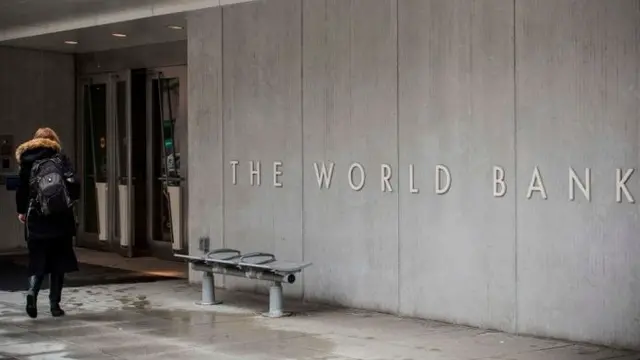
World Bank: The global economy is expected to shrink by 5.2 percent in 2020 due to the COVID-19 pandemic. /The World Bank
The global economy is expected to shrink by 5.2 percent in 2020 due to the COVID-19 pandemic, the World Bank said Monday.
In a far grimmer scenario, the bank lowered its outlook by 7.7 percentage points from a 2.5-percent growth forecast made in January.
The current crisis, it said, is the deepest global recession since World War II, and almost three times as steep as the 2009 global recession, adding the forecast assumes that the pandemic recedes "in such a way that domestic mitigation measures can be lifted by mid-year, adverse global spillovers ease during the second half of the year, and dislocations in financial markets are not long lasting."
The organization expects that the global economy will bounce back in 2021, growing by 4.2 percent.
"In all, the pandemic is expected to plunge a majority of countries into recession this year, with per capita output contracting in the largest fraction of countries since 1870," the Washington-based organization said in a report.
If the COVID-19 pandemic persist longer than expected, restrictions on movement and interactions may have to be maintained or reintroduced, prolonging the disruptions to domestic activity and further setting back confidence, it said.
"Disruptions to activity would weaken businesses' ability to remain in operation and service their debt, while the increase in risk aversion could raise interest rates for higher-risk borrowers. With debt levels already at historic highs, this could lead to cascading defaults and financial crises across many economies," it added.
Specifically, advanced economies are projected to shrink by 7 percent in 2020, as widespread social distancing measures, a sharp tightening of financial conditions, and a collapse in external demand depress activity.
China, the first country to experience the outbreak, is projected to slow to 1 percent in 2020, which is by far the lowest growth it has registered in more than four decades. This scenario assumes that the pandemic remains under control and economic activities recover later in 2020.
By contrast, emerging markets and developing economies (EMDE), will see their gross domestic product (GDP) shrink by 2.5 percent in 2020, due to the negative spillovers from weakness in major economies, alongside the disruptions associated with their own domestic outbreaks.
This is well below the previous trough in EMDE growth of 0.9 percent in 1982, and the lowest rate since at least 1960, the earliest year with available aggregate data.
Among them, a disproportionate blow will be suffered by large domestic COVID-19 pandemic and limited health care capacity and those that are deeply integrated in global value chains.
Also included are those that are heavily dependent on foreign financing and that rely extensively on international trade, commodity exports and tourism.
"Commodity-exporting EMDEs will be hard hit by adverse spillovers from sharply weaker growth in China, and by the collapse in global commodity demand, especially for oil. With nearly 90 percent of EMDEs expected to experience contractions in per capita incomes this year, many millions are likely to fall back into poverty," it said.
(With input from agencies)
 简体中文
简体中文

